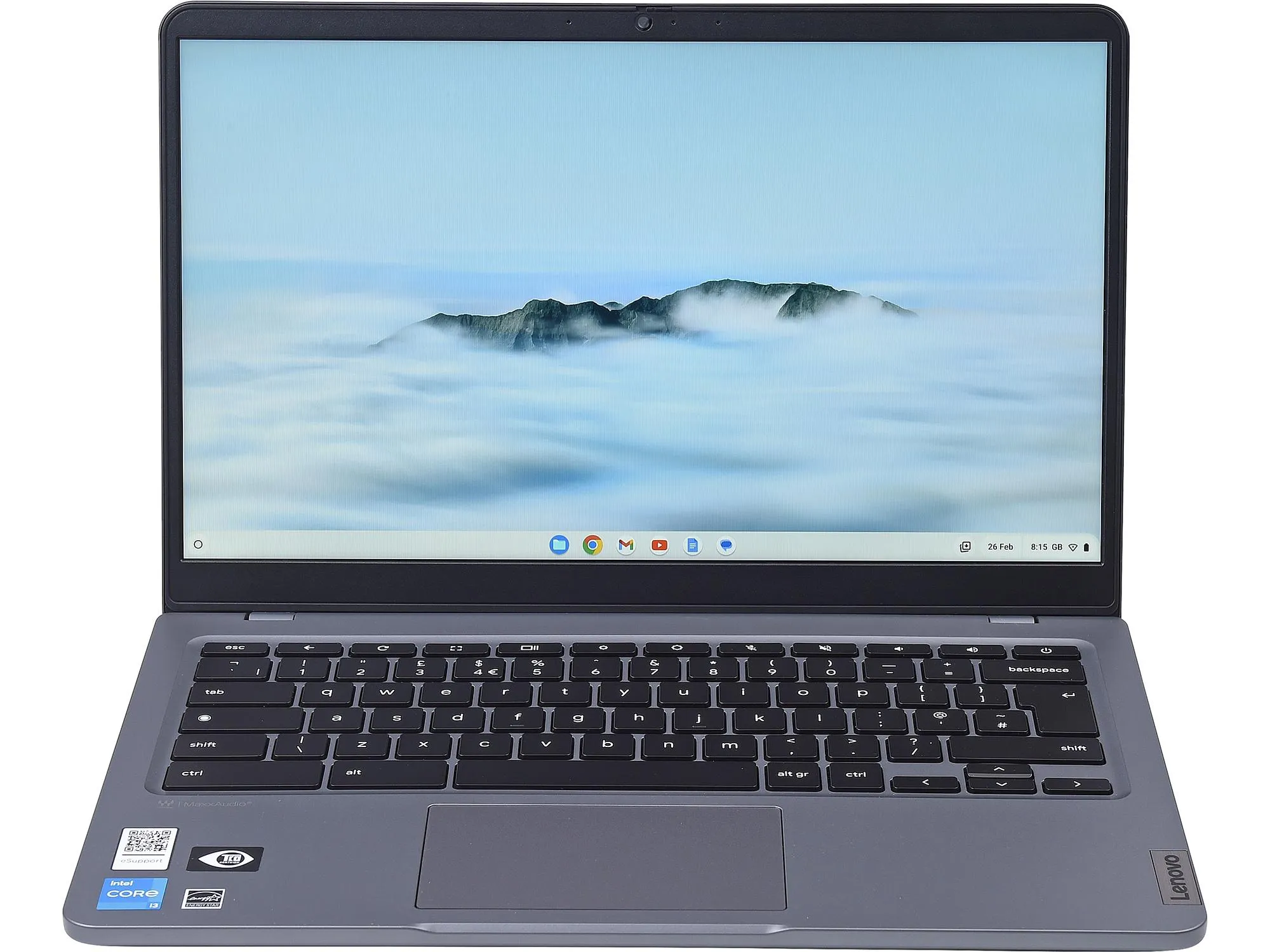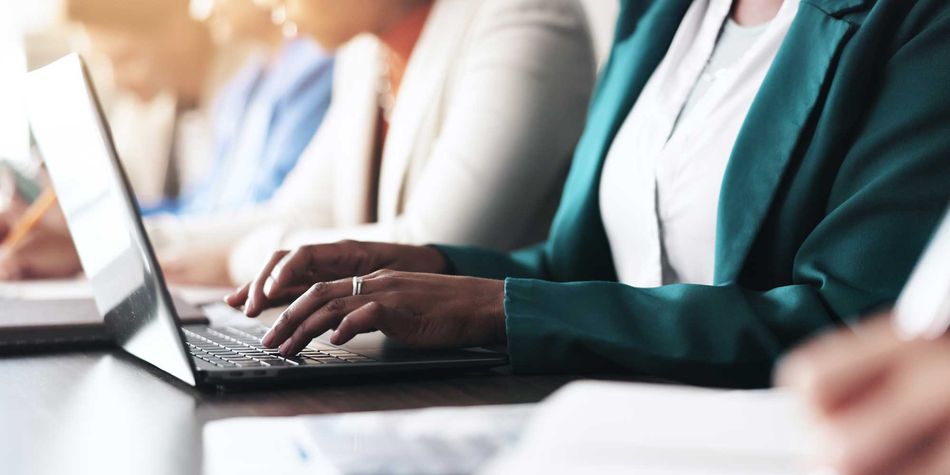Cheap vs pricey laptops: how to get away with spending less

Choose the wrong cheap laptop and you could be left with a painful, sluggish experience. It will be a false economy, too, when you need to upgrade prematurely. We guide you through how to get the laptop you need at the lowest possible price, so you make the most of your money.
How much you need to spend depends on what you typically use a laptop for – below, we guide you through how to find the right-priced laptop and specs to meet your needs. Plus, we present you with some models to consider at different price points and show you which retailers have the best prices.
See our expert pick of the best laptops for great models at a variety of prices
Do you really need an expensive laptop?
Laptops are not cheap, but you can certainly get a decent Windows laptop for less than £400 with some compromises. Or a Chromebook for even less, since ChromeOS has less demanding requirements.
If you shop carefully, you can make sure your money's going where it really counts. You can save even more by checking our pick of the best laptop deals. If you do photo or video editing or want a PC built for the latest Windows AI (what Microsoft calls Copilot+ PCs), you'll need to pay considerably more.
- Laptops costing around £400 will be fast enough for a lot of people, but if you cut the budget much more than this, speed will suffer. These models will slow down significantly if you try to run several programs at once. (There are exceptions to this rule - keep reading to find out more.)
- A good laptop for less than £400 would come with compromises - for example, on the screen and speed. But if you mainly use it for emails and web browsing, it's all you need.
Some cheaper laptops have screens that are significantly duller, with lower resolutions than their more expensive counterparts. This isn’t universal and some have impressive screens, so check our independent laptop reviews to find one which ones are the diamonds in the rough.
Windows laptops to consider

The Asus Vivobook Go 15 E1504FA is a good mid-range laptop; it doesn’t set the world alight but it’ll do the job just fine for typical tasks like web browsing and emails. Check our Asus Vivobook Go 15 E1504FA review to see its strengths and weaknesses.
Add an extra £100 or so to your budget and, provided you pick carefully, you can get a faster model with a better screen.

The £499 Acer Swift Go SFG14-41 has impressive specs for the money, with a six-core AMD Ryzen 5 processor, so it's well worth a look.
Read our full Acer Swift Go SFG14-41 review to see whether there are any annoying compromises you'll have to make, then see below for the latest prices.
Everything you need to know about the laptops you can buy right now, as uncovered by our expert tests - see our laptop reviews.
What is the disadvantage of a cheap laptop?
It's tempting to spend as little as possible on a laptop, but it rarely makes sense to dip below the £200 mark, especially for a Windows laptop.
Cheap laptops in this range can slow to a crawl with only a few programs open or handful of web browser tabs. While they might seem fine when you first get them, all too soon they can slow to a crawl as updates start to push the laptop to cope with more than it can handle.
Our testing also regularly exposes how cheap laptops often have low-quality dull screens, poor speakers and woeful battery life that makes them far less of the handy portable device than you'd hope - especially when you spend much of that battery life waiting for it to load and catch up.
Do cheap laptops last long?
All laptops slow down over time, as the latest all-important security and feature updates are installed to keep you secure and able to support the latest software. So it's important to buy a laptop with enough headroom in its specifications so it'll last as long as you want it to, rather than being forced to prematurely upgrade.
There is spring cleaning you can do to help make a cheap laptop go as far as it can though - see our advice on how to speed up a PC. That said, technology moves on so you will need to buy a more expensive laptop if you don't want to upgrade every few years and keep it working at a decent speed.
Plus your needs might change. Specs that suit you now might not be enough if you find you want to install different software down the line. So avoiding too cheap a laptop gives you that extra flexibility that can save you money in the long run.
It also helps to choose a good reliable brand that is more likely to keep your laptop supported for longer. We asked thousands of laptop owners what they really think of their device – see the results in our guide to the best laptop brands.
Tech tips you can trust: Get our free Tech newsletter for advice, news, deals and stuff the manuals don’t tell you
How much should I spend on a cheap laptop?
Budget laptops are those costing around £400 or less, and come with compromises. For a good cheap model, you should prioritise performance and battery life. Often in this price range you'll need to compromise on screen colours, as well as keyboard and touchpad quality.
If you spend a little more, you can get a laptop without any serious compromises. In our tests, we give models that offer the best value for money our Great Value badge, getting at least three stars out of five in a range of essential laptop tests, including performance, screen and battery life.
Which? members can see our Great Value laptops. Not yet a Which? member? Find out more about the benefits of a Which? membership.
When spending £400 or less on a laptop, we'd recommend considering if a Chromebook would work for you. Its operating system, ChromeOS, is less resource-heavy than Windows, so you can get a faster laptop for less money.
Chromebooks are laptops that run ChromeOS, Google’s rival operating system to Windows and MacOS. ChromeOS works differently, with an online focus – if you mainly use online apps such as Google’s own Docs and Sheets, it could suit you well.
Many popular apps, including Microsoft Office, are available to download or purchase. However, Windows and Mac software isn’t compatible – so some programs you use may not be available on a Chromebook.
Chromebook to consider

The Lenovo IdeaPad Slim 3i 14-inch Chromebook Plus has a slower Intel Core i3 and smaller 256GB storage SSD compared to the laptops we've previously mentioned. But this isn't an issue as this is a Chromebook. Running ChromeOS doesn't require as high-end specs as Windows to run smoothly, and it's online-focused so you're not expected to need as much storage space.
To see which cheap laptops are recommended by our experts, head to our selection of the best budget laptops
What if you pay more for a laptop?
If you’re happy to pay up to around £700, you’re guaranteed to get something quick, but the rest of the package might be a mixed bag if you don’t do your research.
At this price, screen quality tends to be pretty good. However, we’ve also seen some mediocre models that cost this much. Speaker quality can be a major variable, as is battery life.
Desperate for a Mac? The cheapest way to get yourself an Apple computer isn’t to buy a MacBook, but instead a Mac mini desktop. These start at £599 for the latest model. Otherwise, your best bet for a new Apple laptop is to go for the 2020 MacBook Air, which is still available to buy from a range of retailers.
Models to consider
Below is a top pick Windows laptop for around £700, plus the best prices we could find for the 2020 MacBook Air and 2023 Mac Mini.
Windows laptop
This Samsung Galaxy Book 3 comes with a speedy i7 processor, a decent-sized 15.6-inch screen and 512GB of storage. But will that 8GB Ram be enough for your needs and are there any compromises you need to make? See our Samsung Galaxy Book 3 review to find out. Below, find out which retailers have the best prices.
Apple MacBook
The 2020 Apple MacBook Air with the M1 processor is the cheapest way to get your hands on a new MacBook. See our Apple MacBook Air 13-inch 2020 review to make sure it's right for you. See the best prices we could find, below.
Mac mini
The latest 2024 Mac mini starts from £599 for 16GB Ram, M4 chip and 256GB SSD storage. This is a desktop PC, albeit a dinky one, so you'll also need a good computer monitor. Check prices below against what you'll pay if you order directly from Apple.
Get the lowdown on which Apple laptop to buy, and which retailers have the best prices: read our guide to the best MacBooks
Should I buy a tablet instead?
Tablets are generally smaller and lighter than laptops. They can be great for casual web browsing and videos, and you can get a separate keyboard if you do a fair amount of typing – although a laptop would be best if you type a lot.
Sometimes it isn’t completely obvious whether a laptop or tablet might be better for your needs. Some cheaper laptops can only manage very basic tasks, while top-end tablets can be mobile workstations capable of creating fantastic images, graphics and even videos.
- Screen: Tablets are generally smaller than laptops. The smallest tablets, such as the Amazon Fire 7, can be as little as 7 inches diagonally, while the largest are more than 13 inches. Laptops range from 11 inches to around 17 inches.
- Portability: A tablet is, on average, a third of the weight of a laptop. The lightest laptops come in at around 900g (nearly the same as the heaviest tablet), although tablets will get heavier if you add a keyboard.
- Performance: You can find high performance chips in tablets, such as in Microsoft Surface Pro and iPad Pro models. In our tests we tend to find that the equivalent processor in a laptop is faster. This is usually because laptops have cooling fans and most tablets don't. A cooler processor runs more quickly.
- Battery: Our tests show average battery life is pretty similar between tablets and laptops, with tablets lasting around 10 hours on average and laptops 8 hours. For laptops, models with OLED screens and high refresh rates tends to mean poorer battery life. Smaller screens draw less power, and doing less intensive tasks like reading an eBook will consume less battery life than video editing.
- Ports: Laptops usually come with two or four USB ports, along with HDMI, SD card slots and more. Tablets usually have just one port, and that’s also used for charging. So you’ll need to buy an adaptor or hub to connect extras such as a keyboard, as well as your charger.
To see what tablets you could consider, head on over to our tablet reviews. Looking to save money? See which models we recommend in our pick of the best tablet deals



